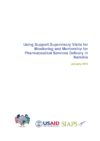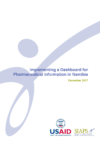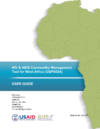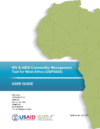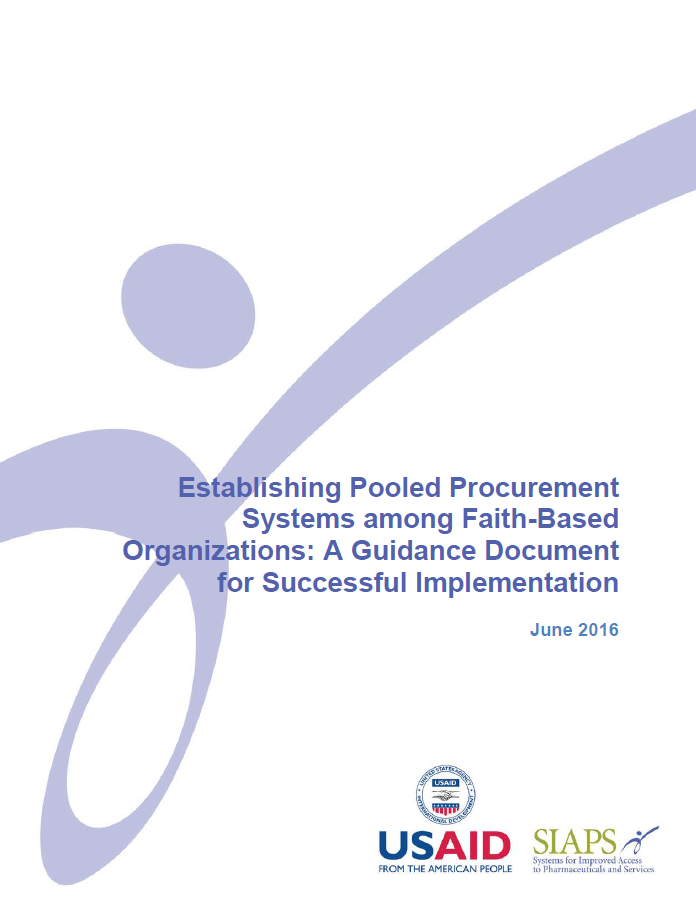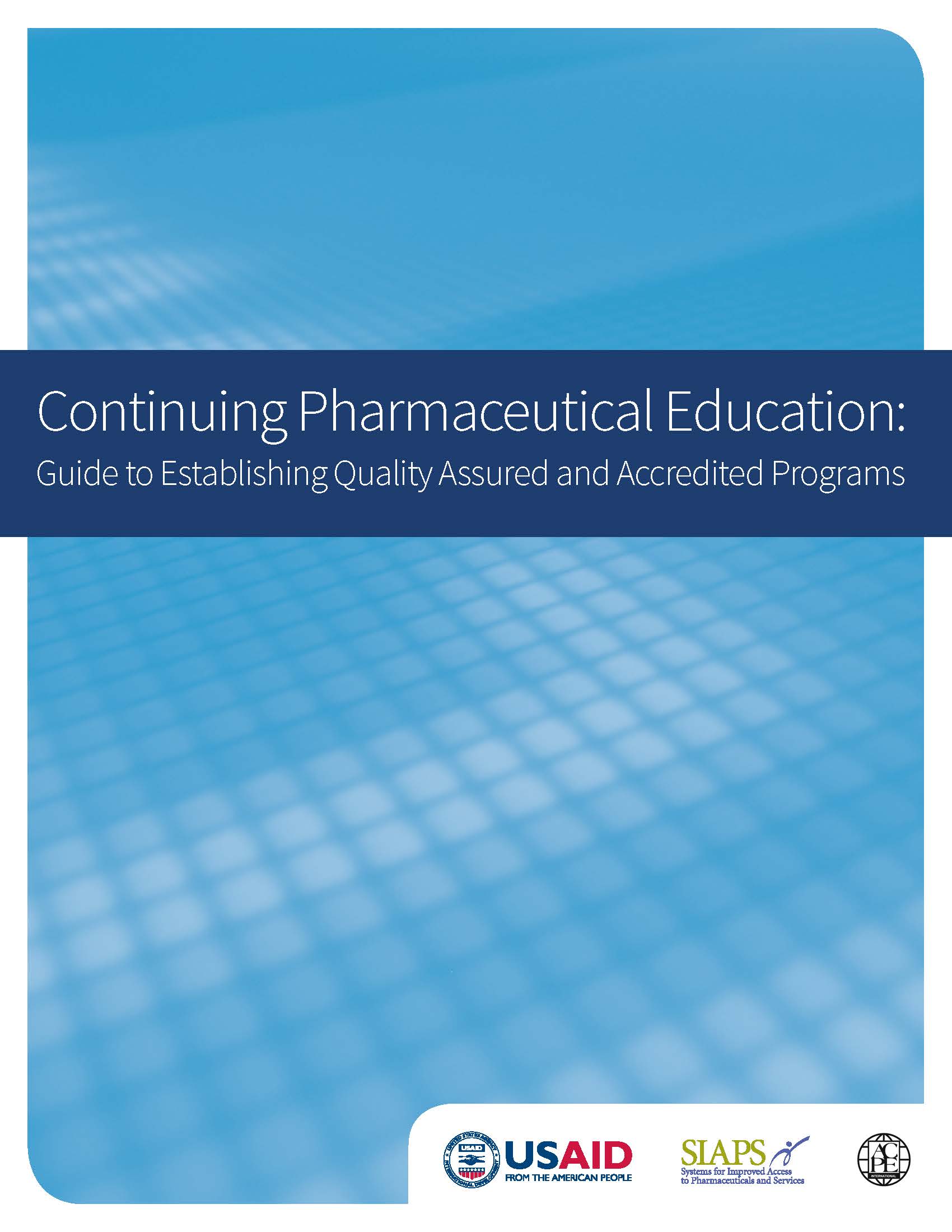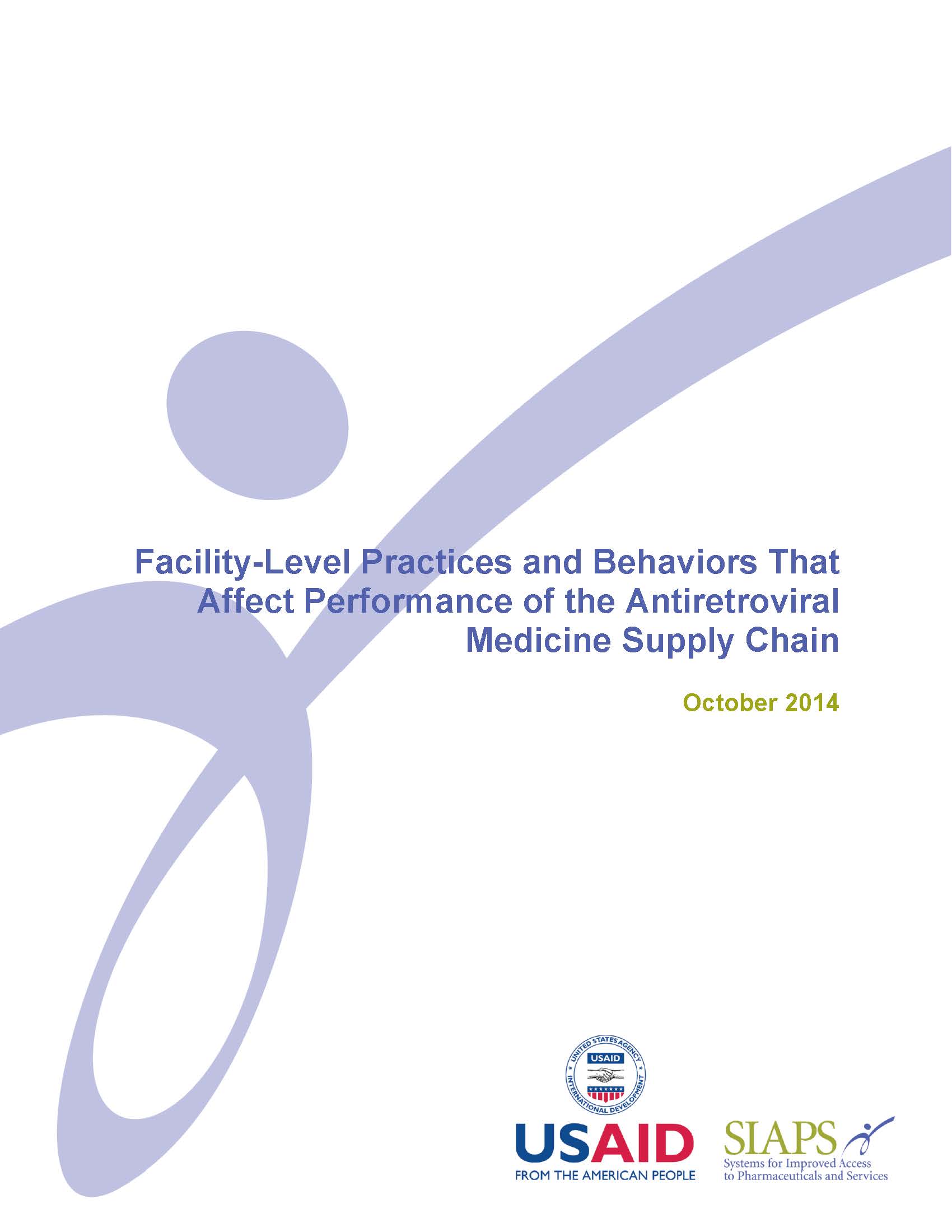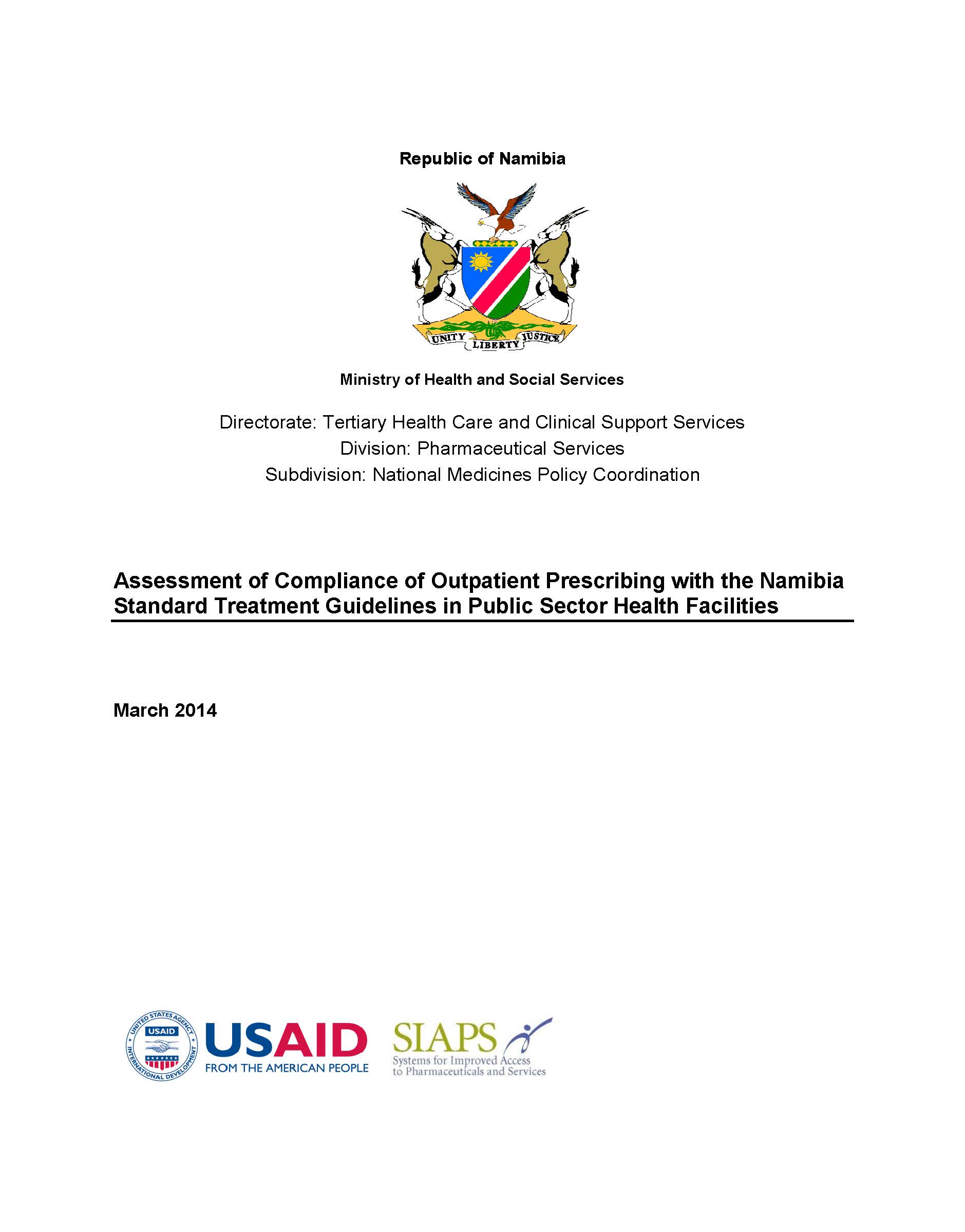SIAPS has supported the Division: Pharmaceutical Services to conduct support supervisory visit (SSVs) to monitor and assess progress of the supported programs and provide recommendations to further strengthen implementation of pharmaceutical service delivery. The SSVs are used to monitor the extent of implementation of interventions aimed at strengthening pharmaceutical services in MRMDs, hospitals, and primary … Read more
Konduri N, Aboagye-Nyame F, Mabirizi D, Hoppenworth K, Kibria MG, Doumbia S, Williams L, Mazibuko G.Digital health technologies to support access to medicines and pharmaceutical services in the achievement of sustainable development goals. Digit Health. 2018 May 3;4:2055207618771407. doi: 10.1177/2055207618771407. Read the full article
SIAPS supported the MoHSS to design and implement a web-based electronic information system (dashboard) for both patient and stock status in Namibia. It was designed to improve coordination among facility, district, regional, and national stakeholders involved in HIV commodity management; increase the use of pharmaceutical information for management decision making at all levels of health … Read more
B Phulu, D Mabirizi, E Sagwa, EDT, G Mazibuko, HIV/AIDS, HR Kagoya, Logistics Management Information System, Namibia, S Mwinga, Technical Report
The West Africa Regional HIV Pharmaceutical Management Information Dashboard is developed and implemented for fifteen focus West African countries for better management of HIV and AIDS commodities. The goal of the Dashboard is to capture, track, aggregate, and disseminate information about antiretroviral drugs (ARVs), rapid test kits (RTKs), and other HIV and AIDS commodities to support … Read more
D Mabirizi, F Aboagye-Nyame, guidance document, HIV/AIDS, J Adu, JB Evi, M Islam, OSPSIDA, S Doumbia, Technical Report, West Africa Regional Project
The goal of the OSPSIDA Dashboard is to capture, track, aggregate, and disseminate information about antiretroviral drugs (ARVs), rapid test kits (RTKs), and other HIV and AIDS commodities to support evidence-based decision making in the West Africa subregion. The Dashboard offers regional partners a platform through which they may easily share information on funding flows and … Read more
D Mabirizi, F Aboagye-Nyame, guidance document, HIV/AIDS, J Adu, JB Evi, M Islam, OSPSIDA, S Doumbia, Technical Report, West Africa Regional Project
Faith-based organizations play a vital role in many developing countries in ensuring access to essential medicines and delivering health services to patients. This is particularly the case in rural areas, where public health facilities do not exist or are inadequate. However, many faith-based organizations face challenges with providing a continuous supply and reliable availability of … Read more
Mutenda N, Bukowski A, Nitschke AM, Nakanyala T, Hamunime N, Mekonen T, Tjituka F, Mazibuko G, Mwinga S, Mabirizi D, Sagwa E, Indongo R, Dean N, Jordan MR, Hong SY. Assessment of the World Health Organization’s HIV drug resistance early warning indicators in main and decentralized outreach antiretroviral therapy sites in Namibia. PLOS One. 2016. … Read more
A Bukowski, AM Nitschke, D Mabirizi, E Sagwa, F Tjituka, G Mazibuko, HIV/AIDS, Journal Article, N Hamunime, N Mutenda, Namibia, S Mwinga, T Mekonen, T Nakanyala
“Continuing Pharmaceutical Education: Guide to Establishing Quality Assured and Accredited Programs” aims to establish and/or improve systems for the quality assurance and accreditation of continuing education/continuing professional development (CE/CPD) activities. The document outlines the rationale and framework for establishing CE/CPD programs, as well as the necessary elements for these programs to be effective, including: 1) … Read more
capacity building, continuing education, Curriculum, D Mabirizi, DG Zarembski, guidance document, JW Wadelin, MJ Rouse, MP Joshi, PH Vlasses, Quality Assurance, S Saleeb, Training
In an effective supply chain there are timely and efficient flows of information (on commodities and patients) and quality products between the supplying units (central and regional medical stores [CMS/RMS]) and the health facilities. Although much has been learned about how to measure, monitor, and improve supply chain performance for antiretrovirals (ARVs) at the central … Read more
ARV, Assessment, AY Chang, Cameroon, D Mabirizi, DM Bowser, HIV/AIDS, Namibia, Supply chain management, Swaziland, TJ Bossert
The Ministry of Health and Social Services (MoHSS), in partnership with the Systems for Improved Access to Pharmaceuticals and Services (SIAPS) Program, funded by the US Agency for International Development (USAID) and implemented by Management Sciences for Health (MSH), conducted an assessment of compliance of prescribers with the Namibia Standard Treatment Guidelines (STG) and changes … Read more
Assessment, compliance, D Mabirizi, E Akpabio, E Sagwa, G Mazibuko, HR Kagoya, medicines, Namibia, prescribers, Q Niaz, rational medicine use, standard treatment guidelines, STGs, Technical Report
